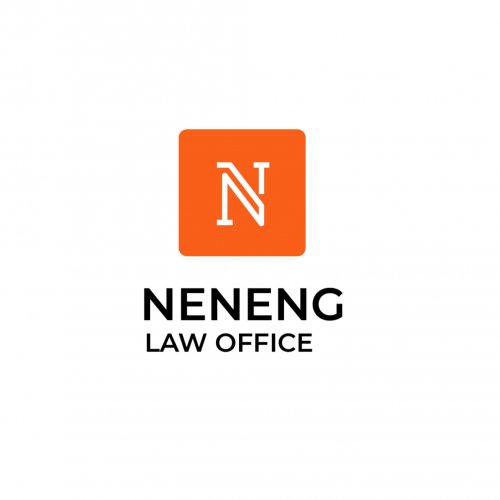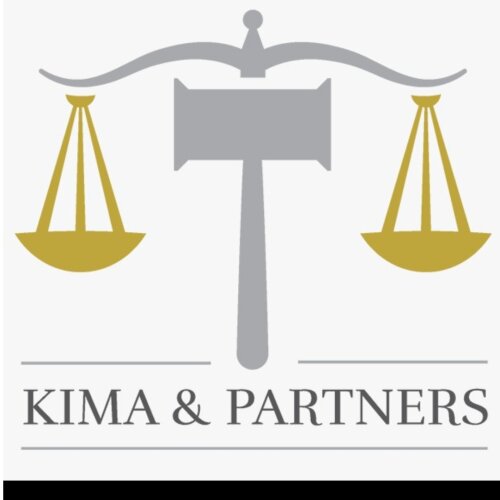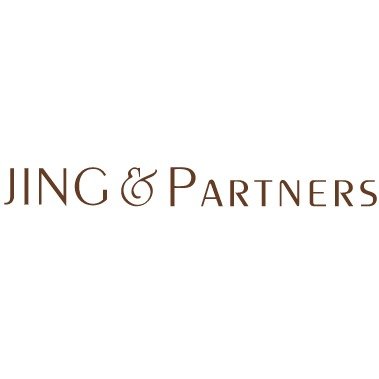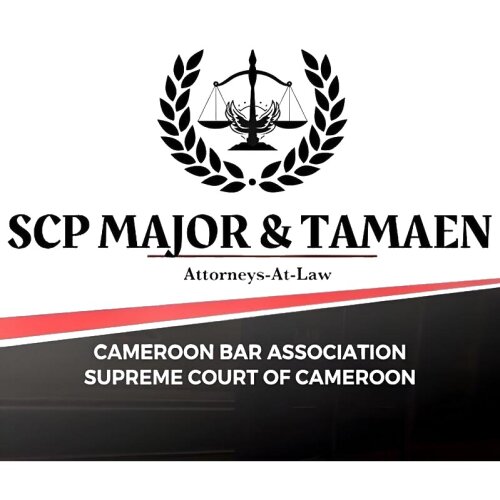Best Restructuring & Insolvency Lawyers in Cameroon
Share your needs with us, get contacted by law firms.
Free. Takes 2 min.
Or refine your search by selecting a city:
List of the best lawyers in Cameroon
About Restructuring & Insolvency Law in Cameroon
Restructuring and Insolvency law in Cameroon provides a legal framework for dealing with financially distressed businesses and individuals. The main aim is to help debtors to either reorganize their finances to continue operations or to ensure an orderly liquidation of their assets to satisfy creditors. These laws are primarily influenced by the Organization for the Harmonization of Business Law in Africa (OHADA) and are designed to protect creditors' rights while offering debtors a fair process to resolve insolvency. Whether you are a business owner or an individual facing financial difficulty, understanding these laws is essential for making informed decisions.
Why You May Need a Lawyer
Navigating restructuring and insolvency matters is complex and often requires professional guidance. You may need a lawyer in the following situations:
- You or your business are unable to pay debts as they become due.
- Your company is facing creditor actions, such as asset seizures or court orders.
- You wish to explore options for restructuring your company's debts to avoid insolvency.
- You need to file for formal insolvency or bankruptcy proceedings.
- You are a creditor seeking to recover money owed by an insolvent entity.
- Negotiations with creditors have stalled or failed.
- You need advice on the legal obligations and consequences of insolvency proceedings.
- There are potential disputes between shareholders, creditors, or directors regarding financial distress.
A lawyer can guide you through the rules, represent you in court, assist in negotiations, and help maximize your legal protections.
Local Laws Overview
Cameroon follows OHADA's Uniform Act on the Organization of Collective Proceedings for Wiping off Debts. This law applies across OHADA member states, providing common rules for restructuring and insolvency matters. Key aspects include:
- Schemes for Prevention and Early Warning: Allows preventive measures before formal insolvency. Conciliation or mediation can be attempted to avoid full bankruptcy.
- Collective Proceedings: If preventive measures fail, the law provides for collective proceedings like judicial reorganization and liquidation.
- Judicial Reorganization: A court-supervised process where a company tries to restructure and continue activities while settling debts according to a plan.
- Judicial Liquidation: When reorganization is not possible, the company's assets are sold to pay creditors.
- Role of the Court: The court plays a major role in overseeing proceedings, approving plans, and appointing administrators or liquidators.
- Creditor Participation: Creditors are involved in meetings, plan approvals, and can even propose restructuring options.
- Director Liability: Directors may be held personally liable if they fail to act properly during times of financial distress.
These laws set out the processes, rights, and obligations of all parties involved in insolvency, and provide tools for both prevention and resolution of financial crises.
Frequently Asked Questions
What is the difference between restructuring and insolvency?
Restructuring is the process of reorganizing a debtor's finances or operations to avoid insolvency or bankruptcy, often through new payment agreements with creditors. Insolvency refers to a situation where a debtor can no longer meet their debts and may result in court intervention and liquidation of assets.
Who can start insolvency proceedings in Cameroon?
Both debtors and creditors can initiate insolvency proceedings. The debtor typically applies voluntarily, but if creditors are not paid, they can petition the court to open insolvency proceedings against the debtor.
Can a company continue to operate during insolvency proceedings?
Yes, during judicial reorganization, the company may continue to operate under the supervision of a court-appointed administrator with the aim of restoring financial health and paying creditors.
What happens to employees if a company is declared insolvent?
Employees' rights are protected by law to a certain extent. Employee claims for unpaid salaries often have priority over other debts in the event of liquidation.
Are there alternatives to liquidation?
Yes, alternatives include preventive measures such as out-of-court settlements, conciliation, and judicial reorganization plans that aim to revive the business and satisfy creditors without full liquidation.
How are creditors paid during insolvency?
Creditors are paid in a legal order of priority. Secured creditors, employees, and then unsecured creditors receive payments from the proceeds of asset sales or according to a reorganization plan approved by the court.
Can directors be held personally liable for company debts?
Yes, directors can be held personally liable if they are found to have mismanaged the company, delayed insolvency filing, or committed fraud. It is important for directors to act responsibly and seek legal advice at early signs of financial trouble.
What is the role of the insolvency administrator?
The administrator manages the company’s affairs during insolvency proceedings, prepares assessments for the court, oversees business operations, and proposes restructuring or liquidation strategies.
Do small businesses and individuals have access to insolvency procedures?
Yes, insolvency procedures under OHADA and Cameroonian law apply to both individuals and businesses, regardless of size.
How long do insolvency proceedings take in Cameroon?
The duration varies depending on the complexity of the case, the debtor's assets, and the number of creditors. Simple liquidation can take several months, while complex reorganizations may take years.
Additional Resources
If you are seeking further information or support, the following resources may be helpful:
- The OHADA Common Court of Justice and Arbitration - for information on business law frameworks.
- Ministry of Justice of Cameroon - provides access to local regulations and formal procedures.
- Professional associations such as the Cameroon Bar Association - can recommend qualified restructuring and insolvency lawyers.
- Court Registries - for official filings and public information on insolvency cases.
- Chambers of Commerce and Industry - sometimes offer advisory services on financial distress.
Next Steps
If you are facing restructuring or insolvency issues in Cameroon, consider the following steps:
- Gather all financial documents and details of debts or pending legal actions.
- Consult with a qualified lawyer specialized in restructuring and insolvency laws to assess your situation and explain your options.
- Explore preventive solutions such as negotiation or mediation with creditors before entering formal proceedings.
- If formal proceedings are necessary, follow your lawyer's advice on preparing required documents and representing your interests in court.
- Stay informed about your rights and obligations throughout the process to ensure the fairest possible outcome for all parties.
Managing financial distress is challenging, but with the right legal guidance, you can navigate Cameroon's restructuring and insolvency laws effectively and protect your interests.
Lawzana helps you find the best lawyers and law firms in Cameroon through a curated and pre-screened list of qualified legal professionals. Our platform offers rankings and detailed profiles of attorneys and law firms, allowing you to compare based on practice areas, including Restructuring & Insolvency, experience, and client feedback.
Each profile includes a description of the firm's areas of practice, client reviews, team members and partners, year of establishment, spoken languages, office locations, contact information, social media presence, and any published articles or resources. Most firms on our platform speak English and are experienced in both local and international legal matters.
Get a quote from top-rated law firms in Cameroon — quickly, securely, and without unnecessary hassle.
Disclaimer:
The information provided on this page is for general informational purposes only and does not constitute legal advice. While we strive to ensure the accuracy and relevance of the content, legal information may change over time, and interpretations of the law can vary. You should always consult with a qualified legal professional for advice specific to your situation.
We disclaim all liability for actions taken or not taken based on the content of this page. If you believe any information is incorrect or outdated, please contact us, and we will review and update it where appropriate.
Browse restructuring & insolvency law firms by city in Cameroon
Refine your search by selecting a city.
















